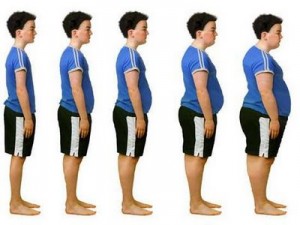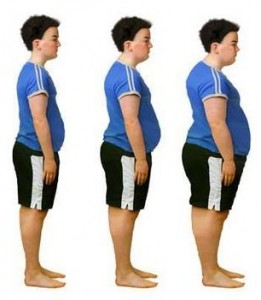 If you pay attention to diet advice, you’ve probably noticed the recommendation that we should follow a “Mediterranean” diet. The trend began when a well-known study conducted in the 1960s found that people who lived near the Mediterranean Sea were less likely to die from heart disease, most likely due to their diets. But does that evidence hold true today?
If you pay attention to diet advice, you’ve probably noticed the recommendation that we should follow a “Mediterranean” diet. The trend began when a well-known study conducted in the 1960s found that people who lived near the Mediterranean Sea were less likely to die from heart disease, most likely due to their diets. But does that evidence hold true today?
The Mediterranean diet: Does it really prevent heart disease?
What we know about fruit
Is obesity really a disease?
 Last month, the American Medical Association classified obesity as a disease in its own right for the first time. (Previously, it had been categorized as a symptom or risk factor.) There is plenty of evidence that shows people who are obese are more likely to develop diabetes and cardiovascular disease. But does that make obesity a disease in its own right? What about being overweight, but not obese?
Last month, the American Medical Association classified obesity as a disease in its own right for the first time. (Previously, it had been categorized as a symptom or risk factor.) There is plenty of evidence that shows people who are obese are more likely to develop diabetes and cardiovascular disease. But does that make obesity a disease in its own right? What about being overweight, but not obese?
Pregnancy and alcohol consumption: What we know

We have some exciting news in my family: We are expecting our third child in mid-October. The upcoming addition to our family has me reviewing the evidence on how to have a healthy pregnancy. So I was intrigued when I saw an article in the New York Times this week about alcohol consumption during pregnancy.
[Read more…]
New evidence about the federal food stamps program
 Nearly 45 million American receive help purchasing food each year through the Supplemental Nutrition Assistance Program (SNAP), commonly called food stamps. Here on EBL, we’ve written about the federal program in the past, specifically how it helps keep families out of poverty. [Read more…]
Nearly 45 million American receive help purchasing food each year through the Supplemental Nutrition Assistance Program (SNAP), commonly called food stamps. Here on EBL, we’ve written about the federal program in the past, specifically how it helps keep families out of poverty. [Read more…]
The latest evidence on Vitamin D
 Keeping track of the latest evidence on which vitamin supplements to take can be confusing. Although new information is available regularly, mainstream media outlets don’t always report the full story, which can result in conflicting reports.
Keeping track of the latest evidence on which vitamin supplements to take can be confusing. Although new information is available regularly, mainstream media outlets don’t always report the full story, which can result in conflicting reports.
There is new, clear evidence this month: The U.S. Preventative Services task force is recommending that healthy, postmenopausal women should not take Vitamin D and calcium supplements to prevent fractures.
The task force – an independent panel of medical experts – reviewed more than one hundred medical studies before making their recommendation. It found insufficient evidence that taking vitamin D and calcium actually helps prevents fractures, and found a small risk of increased kidney stones for people who did take the supplements.
The task force’s recommendation does not apply to people suffering from osteoporosis or vitamin D deficiencies, or those living in skilled nursing facilities.
Cornell nutritionist Patsy Brannon has weighed in on the national debate over vitamin D supplements. Brannon was on the Institute of Medicine panel. While the panel recommended increasing the daily intake of vitamin D, it did not find that a deficiency is linked to chronic conditions such as cancer, diabetes and heart disease.
“The evidence available is inconsistent, with some studies demonstrating this association while others show no association, and still others show evidence of adverse effects with high blood levels of vitamin D,” Brannon told the Cornell Chronicle. Although we can’t conclude whether low vitamin D is associated with chronic disease, the evidence is clear that these vitamin supplements do not prevent fractures.
Debunking weight-loss myths
 As our nation continues to struggle with an obesity epidemic and individuals work to lose weight with diet and exercises programs, a group of researchers from University of Alabama at Birmingham want to make sure we know what not to do.
As our nation continues to struggle with an obesity epidemic and individuals work to lose weight with diet and exercises programs, a group of researchers from University of Alabama at Birmingham want to make sure we know what not to do.
In an article published earlier this year in the New England Journal of Medicine, obesity researchers reviewed the evidence about losing weight to identify what we really know about the best ways to lose weight.
They identified 7 commons myths about losing weight which are not true:
1. Small changes in diet and exercise will create big, long-term weight changes.
2. Setting realistic goals for weight loss is important to prevent frustration.
3. Rapid weight-loss is less successful over the long-term than gradual weight loss.
4. Patients who want to lose weight must be “mentally ready.”
5. Physical education classes play an important role in preventing childhood obesity.
6. Breastfeeding protects babies against obesity later.
7. Sexual activity is a good way to burn calories.
The review also identified some common perceptions about losing weight that are, in fact, supported by strong evidence:
- Genetics play a role in weight loss, but that factor is not insurmountable.
- Exercise helps people maintain their weight.
- Patients lose more weight on programs that provide meals.
- Some prescription drugs help with weight loss and maintenance.
- Weight-loss surgery is an effective way to maintain long-term weight loss and reduce mortality in appropriate patients.
The study also listed some ideas about weight loss that are still not proven or disproven by the current available evidence. For example, we don’t actually know whether eating breakfast regularly aids in weight loss, or whether people who snack often are more likely to gain weight.
In general, the medical community and researchers have praised the study for providing an accurate picture of what we know – and what we don’t – about losing weight. The idea going forward is that researchers should continue to develop new evidence on the most effective methods for losing weight.
New evidence on fluoride
 Since I was a child, I have always considered fluoride a good thing for preventing tooth decay. I’ve always taken regular trips to the dentist, brushed with a fluoride toothpaste and generally taken good care of my teeth. So I was surprised last week to see a new review raising some questions about the safety of fluoride consumption.
Since I was a child, I have always considered fluoride a good thing for preventing tooth decay. I’ve always taken regular trips to the dentist, brushed with a fluoride toothpaste and generally taken good care of my teeth. So I was surprised last week to see a new review raising some questions about the safety of fluoride consumption.
The report – written by Harvard researchers and funded by the National Institute of Public Health – reviewed 27 studies published over a period of 22 years that looked into whether fluoride damaged the nervous systems of people. The studies included measured exposure to fluoride in drinking water related to cognitive function tests and IQ scores.
The researchers found that children living in areas where fluoride is added to the water score lower on IQ and cognitive tests compared with children living in areas where fluoride is not added to the water. The conclude that fluoride may be a developmental neurotoxicant for children that affects brain development at exposures much below those that can cause toxicity in adults.
What surprised me the most is that 70 percent of U.S. households live in communities where fluoride is added to the water. That’s millions of Americans ingesting an additive that has unclear long-term effects.
The report also calls for additional studies to evaluate dose-response relationship of fluoride – basically how much is needed to prevent cavities without causing harmful side effects
I feel lucky that my community does not add fluoride to our water supply. And I have to admit – since reviewing this new report – I’ve been much more careful about limiting the amount of toothpaste on my children’s brushes each day.
The evidence on eggs
 For years, eggs have had a bad reputation among doctors and nutritionists because of the cholesterol content of the yolks.
For years, eggs have had a bad reputation among doctors and nutritionists because of the cholesterol content of the yolks.
One large egg contains about 190 milligrams of cholesterol. The U.S. dietary guidelines recommended healthy adults eat no more than 300 milligrams of cholesterol a day, and those at risk for heart disease eat no more than 200 milligrams a day. (You can see how a three-egg omelet would be out of the question under the current guidelines.)
But a review published by the British Medical Journal this month questions whether egg consumption actually leads to heart disease and stroke. In the article, the researchers reviewed eight prospective studies that included a total of more than 260,000 people.
What did they find? Eating one large egg a day did not increase the risk of cardiovascular disease or stroke for healthy adults. The study did find, however, that egg consumption was associated with high levels of heart disease among diabetic patients, but this subgroup also showed a reduced risk for stroke when eating more eggs.
The take-home message: Further studies are needed to clarify the risks for people with health conditions like diabetes. But overall, eggs aren’t a risky food to eat everyday.
The evidence on preventing weight gain
 We’ve all heard extensively about the obesity epidemic that impacts millions of Americans, leading to heart disease, stroke and cancer, among other problems. And, of course, it’s the time of year when many of us make new year’s resolutions to lose weight, exercise more and generally improve our health. But what methods work the best?
We’ve all heard extensively about the obesity epidemic that impacts millions of Americans, leading to heart disease, stroke and cancer, among other problems. And, of course, it’s the time of year when many of us make new year’s resolutions to lose weight, exercise more and generally improve our health. But what methods work the best?
To answer that question, I dug up a systematic review of lifestyle changes to help prevent weight gain in people who were normal weight, overweight and obese. The researchers looked at 40 studies on a wide array of interventions including low-calorie diets, Weight Watchers, meal replacement, behavior therapy by trained nutritionists, low-fat diets, exercise programs and others.
The conclusion? There are many effective ways to lose weight and prevent weight gain. Eight interventions yielded significant improvement in weight control . These included low-fat diets with and without meal replacements, low calorie diets, Weight Watchers, and diets with behavior therapy.
The review did not find enough evidence to support lifestyle interventions to prevent weight gain in normal-weight adults. It called for better study design as well as improved reporting of participant characteristics and outcomes in weight loss studies.”
The take-home message here: To lose or prevent gaining weight, your best move is to do something. Whether it’s diet, exercise, behavior therapy, or a combination of the three, it’s likely to yield results.
New evidence on smoking and pregnancy
 It’s no secret that smoking is bad for your health – and, for pregnant women, has serious impacts on the health of their unborn babies. Smoking during pregnancy not only increases the chance for early labor and miscarriage , but also lowers the unborn baby’s heart rate, limits the oxygen he receives, , and increases his risk of lung disease later in life.
It’s no secret that smoking is bad for your health – and, for pregnant women, has serious impacts on the health of their unborn babies. Smoking during pregnancy not only increases the chance for early labor and miscarriage , but also lowers the unborn baby’s heart rate, limits the oxygen he receives, , and increases his risk of lung disease later in life.
Now there is new evidence that provides pregnant mothers with one more reason to avoid smoking: A new systematic review published in the British Medical Journal found that children whose mothers smoked during pregnancy were more likely to be overweight.
The analysis reviewed a total of 30 prospective studies to identify factors during pregnancy and infancy that led to obesity in childhood. Children whose mothers smoked during pregnancy were 47% more likely to be obese.
The review also found that children were significantly more likely to be overweight if their mothers were overweight before giving birth, or if they were fed solids before they were 4 months old.
There were also some factors that seemed to protect against childhood obesity. Breastfed babies were 15 percent less likely to be overweight in childhood. Babies who gained weight more slowly during infancy were also significantly less likely to become overweight as children.
The review offers some solid guidelines for mothers during pregnancy and while caring for young infants. The authors also noted medical professionals could use the findings to develop screening guidelines for pregnant mothers and young babies.
The bottom line: Nutrition and health during pregnancy and infancy has an important impact on a child’s health and well-being.




